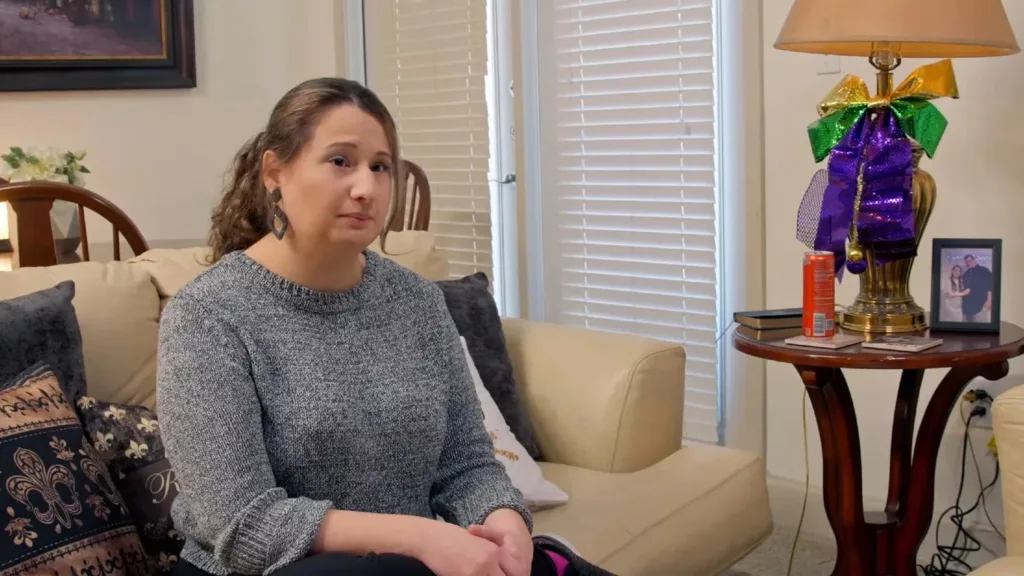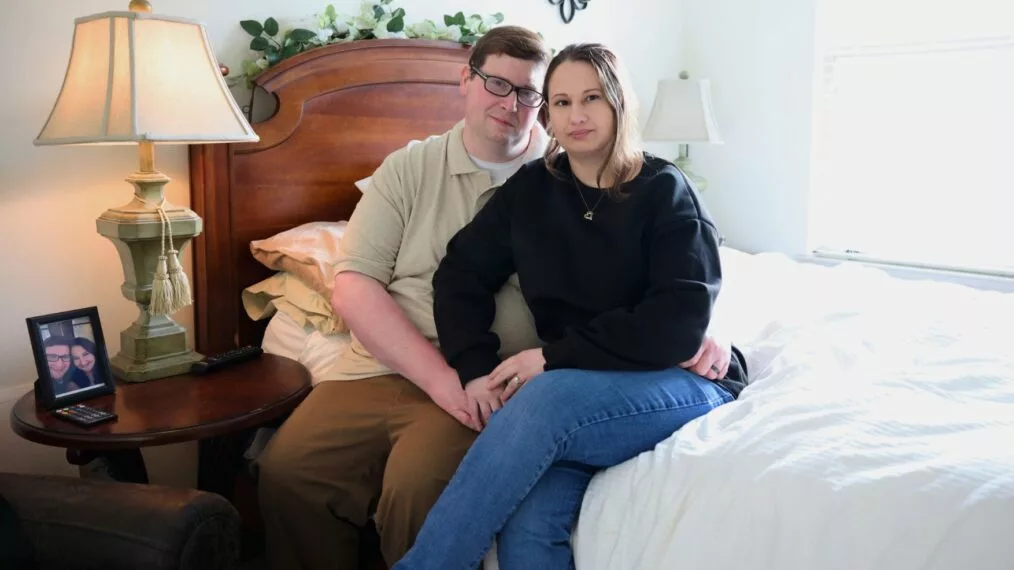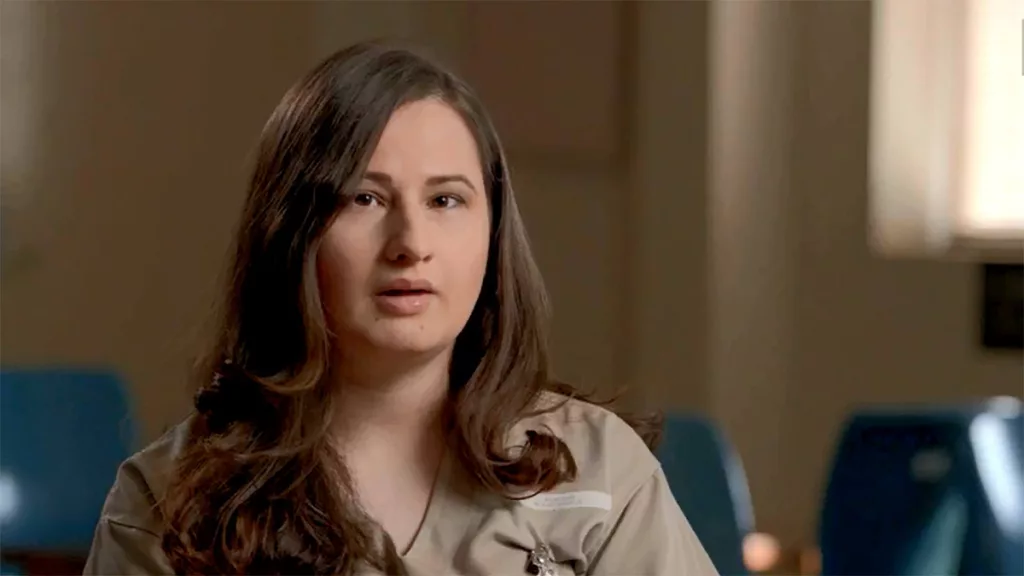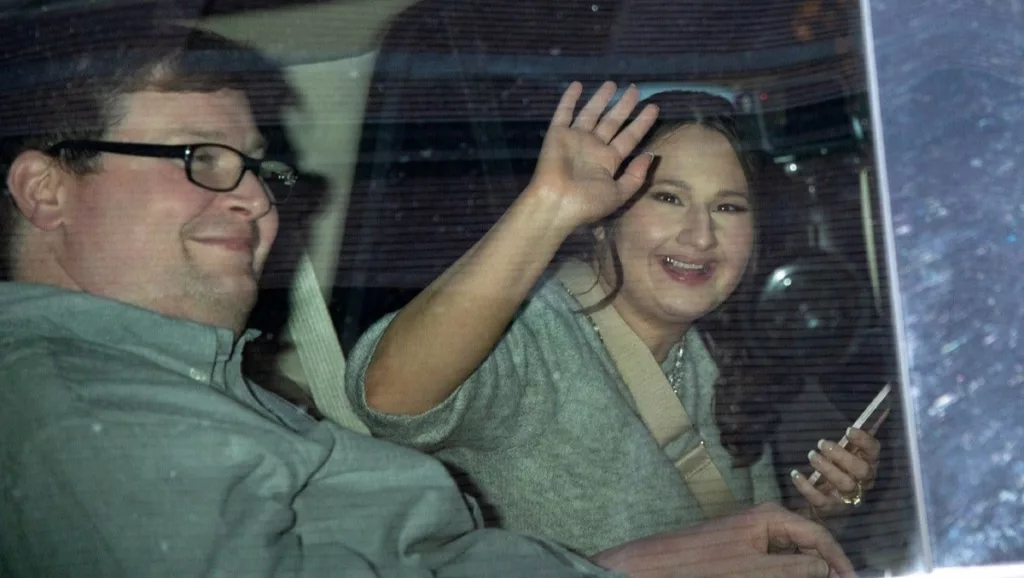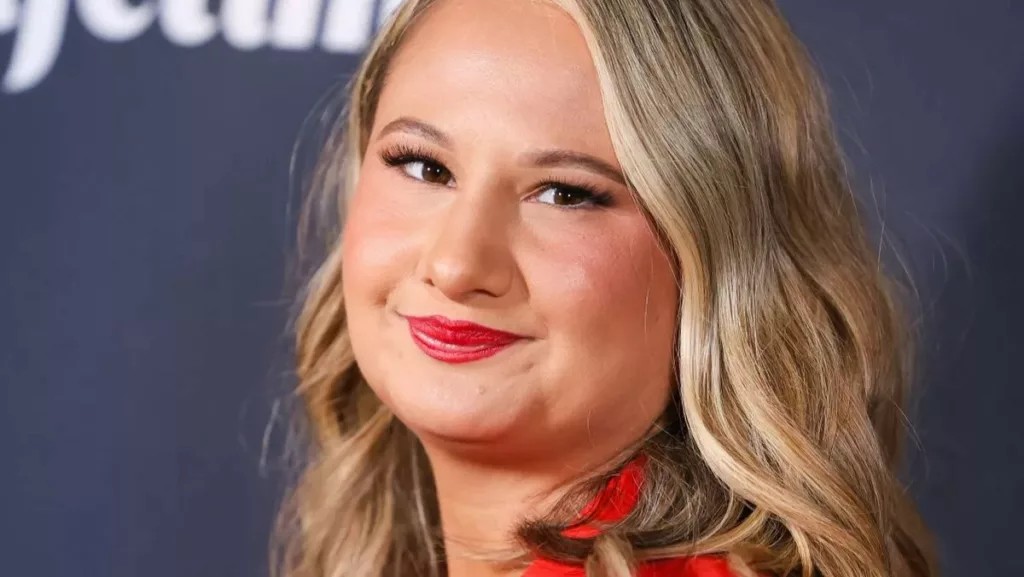Gypsy Rose spent her childhood shackled to a wheelchair by the controlling actions of her mother, Dee Dee. For years, Dee Dee forced Gypsy to pretend to be painfully ill while secretly enjoying the feeling of being needed. But Gypsy started to sense that something wasn’t right and, in time, realized she had been deceived her entire life.
Determined to regain her freedom, Gypsy conspired with her then-boyfriend Nicholas in a desperate bid to escape her mother’s grasp forever. Their actions led to Dee Dee’s death and landed Gypsy in prison for a decade.
Now, after serving the majority of her sentence, Gypsy emerges from the cell that had become her home. But prison was familiar, and confinement offered a level of protection. Outside, the spotlight shines brighter than ever before, and Gypsy finds adjusting to the real world harder than she imagined. Eager to give Gypsy space to heal, her family welcomes her to their temporary home.
But tensions simmer under the surface as they each struggle to understand how best to support Gypsy in this new phase. Most unnerving of all is discovering that true independence remains elusive as authority figures continue manipulating Gypsy’s freedom with conflicting rules and demands.
Living in the Spotlight
Episode 1 kicks off just three days before Gypsy’s highly anticipated prison release. Her family excitedly transforms an Airbnb into a festive homecoming, though tensions lie beneath with doubts around Gypsy’s new husband, Ryan.
We meet Gypsy herself, softly spoken yet determined to experience simple freedom after so long. When release day finally arrives, officials worry intense media fascination could sabotage Gypsy’s transition.
Ryan picks her up under the cover of night, overwhelmed to physically embrace his wife. They wed that evening at the rental, ignoring divisions within the family. But outside pressures quickly intrude.
Reporters tail their vehicles, pressing for details as intrusively as prison guards. An unscheduled stop sparks bombardment until a distressed gypsy flees into new shoes, symbolizing her desire to shed the past.
However, continual state intervention denies this. Officials reorder their route via tense phone calls, overriding Gypsy’s family visit to immediately depart Missouri—revealing authorities retain control despite “freedom.”
The public craze for Gypsy’s every action intensifies as the episode ends, with Gypsy herself commenting that this new “prison” feels even less liberating than the last. Attention brings its own shackles as her challenging adjustment to ordinary life publicly unfolds.
Meet Gypsy Rose
At the heart of Episode 1 is Gypsy Rose, a woman whose whole life has been shaped by forces outside her control. Having emerged from eight years inside, we see her delicate yet steely resolve to finally live for herself.
All Gypsy wants are small joys like new shoes or fast food, but crushing public interest positions her once more as a spectacle. Producers depict her reflections on this dilemma with empathy. Though burdened by the past, Gypsy displays quiet hope.
Her family offers both refuge and conflict. Father Rod and Kristy dote protectively, clearly repentant for lost time. But doubts linger around Ryan, whose marriage to the imprisoned gypsy raises eyebrows.
During their brief relationship, Ryan seems timidly thrilled by newfound access yet also keen to assert authority over Gypsy. The producers hint that his desires may clash with her need for self-guidance after so much manipulation.
Across all characters, directors maintain an impartial tone. We grasp each individual’s flaws and good intentions without judgement as Gypsy sets out on her hardest role yet—reclaiming autonomy over her story with the world watching. Hers is a journey to true freedom we cannot help but root for.
Fame & Scrutiny
Gypsy Rose ignited a media frenzy the moment she exited the prison walls. Documentary scenes portray society’s relentless fixation, from TikTok sleuths tracking her every action to tabloid rehashes relentlessly stirring painful memories.
Stepping back into the outside world provides a clearer view of such mania. Privacy exists as a perpetual spectacle. Yet the directors depict an empowered gypsy, seemingly drawing confidence from acclaim at first.
Interviews reveal her difficult acceptance that obscurity remains impossible. But enjoying support from online “friends” offers solace after decades overshadowed by a mother’s lies. She articulately addresses audiences with a candor that hooks many.
Of course, fame has its costs. Continuous public dissection of private hurt takes emotional tolls. And pressures accumulate as a divorce looms and decisions impacting her future autonomy surface.
By the episode’s end, Gypsy’s stability hinges on navigating voracious viewers while sculpting independence. Only by embracing her narrative’s reins can a life beyond scrutiny become reality, no matter attention’s temporary allure. Hers is a complex road to true autonomy.
Navigating Parole
Gypsy’s first taste of freedom proved disorienting as she grappled with parole’s complex ropes. Episode 1 pulls back the curtain on the struggles former inmates typically shoulder alone.
Even minor details, like shoe shopping, erupt into a media spectacle. But more unsettling are the terse calls from officers wielding absolute control over her next steps. Viewers lean in as Gypsy withstands panic-inducing orders with little explanation or compassion.
Her trusty family can only look on powerlessly as new “rules” rip Gypsy from her parents’ expected embrace. Harsh directives disregard how destabilizing each demand feels after decades of others dictating her life.
Documentarians shine a necessary light on parole’s bureaucratic detachment from humanity. Pawns in the system, people like Gypsy scramble to interpret conflicting commands without advocates. Her steadfast spirit, though shaken, offers hope that the voices of the affected can drive overdue reform.
By humanizing one woman’s disconcerting entry into a maze of legalities, the series compellingly spotlights parole’s pressing need for caring guidance instead of punishment’s continuation. Gypsy’s journey has just begun.
Marital Tension on Display
From the outset, fractures were evident in Gypsy and Ryan’s union. Her thirst for independence chafed against his desire for stability.
Episode 1 introduces Ryan as overprotective and controlling and shows the couple differing on unpacking from prison. While Gypsy yearned to reconnect with fans online, Ryan prioritized settling away from prying eyes.
Subtle actions like disputing travel plans hinted at the partnership’s fragility. But it was Ryan’s petulant anger towards detours and delaying their homesteading that provided early signs of incompatibility.
Gypsy’s gentle spirit remained intent on processing trauma, not more confinement. Yet amid parole’s pressures, navigating Ryan’s dissatisfaction burdened her nascent freedom.
By the series’ end, their divorce came as no surprise. With an intimate glimpse of their dynamic’s deficiencies so soon after prison’s fences fell away, little hope seemed left for meeting each life chapter together.
While some damage was insurmountable, by following Gypsy’s earnest pursuits of healing beyond bars, the show honors her resilience in forging a future on her terms.
Treading the Line Between Empowerment and Exploitation
While Lifetime’s latest true crime offering shines necessary light on pressing issues, it risks perpetuating the very spectacles it depicts.
Episode 1 introduces a complex, sympathetic gypsy who readily articulates trauma but thrusts it onto a very public stage. Her participation gives her agency, yet normalcy remains elusive as each step attracts invasive scrutiny.
There lies the series’ tightrope: providing a platform for healing while profiting from sensationalism. Future installments must prioritize consent and balance intrigue with dignity. If allowing voyeurism into healing processes, producers shoulder great responsibility.
Some aspects show promise, like illuminating parole’s deficiencies. And many root for Gypsy to navigate this with wisdom beyond her years. Her divorce’s fallout also offers space for nuanced emotions absent in tabloids.
However, exploitation is impossible to ignore, with cameras following each relationship’s demise. Continuing warrants vigilance so that humanity, not ratings, guide every frame.
Overall, the premiere leaves an unpleasant aftertaste but hints at poignancy if priorities shift. For now, a cautious three stars. The story and person at its heart deserve handling with the utmost care. Only time will tell if this platform can rise to that challenge.
The Review
Gypsy Rose: Life After Lock Up
Gypsy Rose: Life After Lock Up shines a necessary light on the challenges facing those emerging from incarceration, especially the deficiencies within parole. However, maintaining a respectful level of consent and privacy will be crucial moving forward to avoid exacerbating the very spectacles of obsession and exploitation that Gypsy has endured. If navigated with care and empathy, this platform could play an important role in empowering reform.
PROS
- Sheds light on problems with the criminal justice system, like parole.
- Humanizes the experience of those leaving incarceration
- Offers a look at Gypsy's journey to healing and independence.
CONS
- Risks further exploiting and sensationalizing Gypsy's trauma
- Divorces and other transitions portrayed may lack the necessary consent.
- Cameras following each life change could inhibit a truly "normal" life.









































